It is common for parents of young children to be concerned about their children’s readiness for kindergarten. After all, starting school often means significant changes for young children, from knowing to read and write to following classroom rules and playground politics. And not all children will arrive at school with the same abilities; some will already learn how to spell their names, while others may stumble to recite the alphabet without assistance.
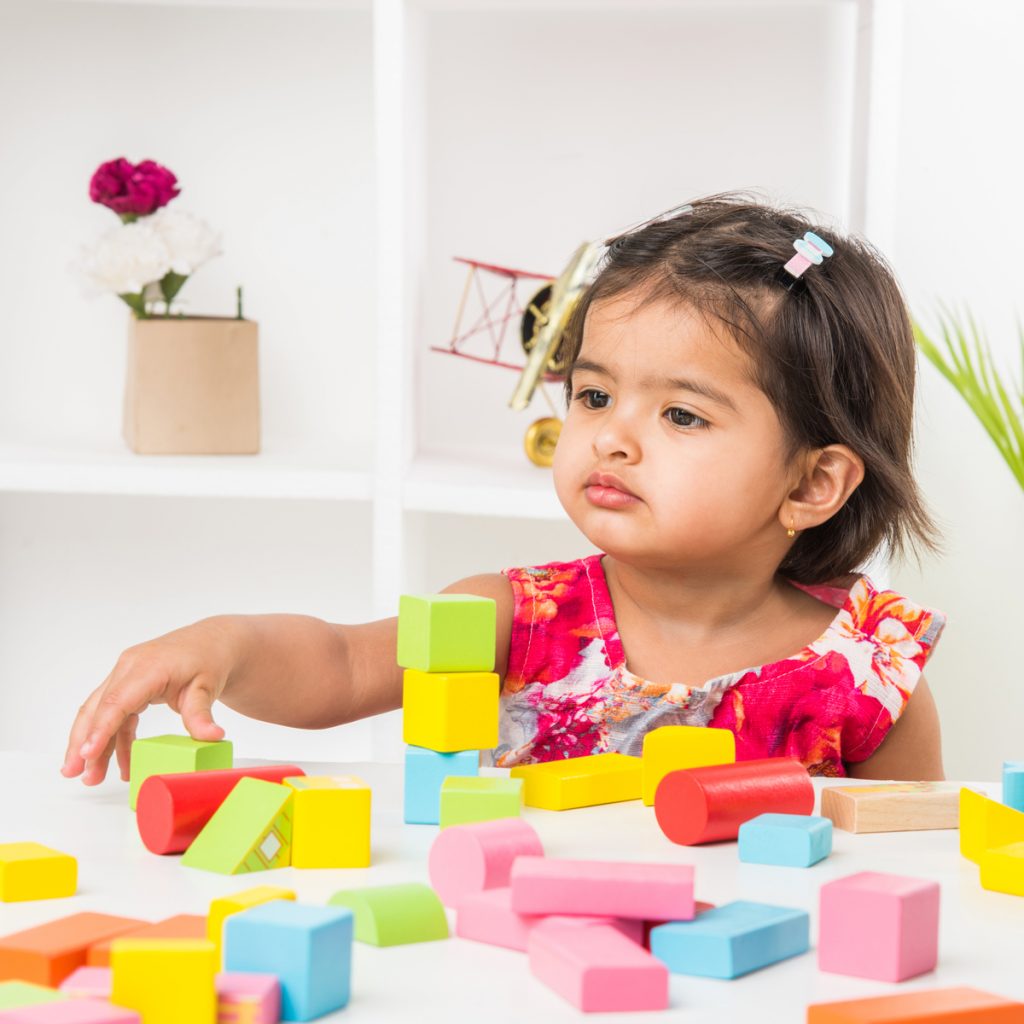
While there are numerous checklists of “what should a kid know before kindergarten,” experts say the reality is much simpler. Most typically developing children will have mastered the skills required for kindergarten readiness, and those who haven’t will do so with the assistance of parents and teachers.
Formal special education evaluations and assistance can help a small subset of children struggling with kindergarten requirements. Read on to learn about the various skills children are expected to have when entering kindergarten.
Instead of ‘requirements,’ consider ‘readiness.’
There is no single set of “kindergarten requirements.” Many states allow age-eligible children to attend kindergarten even if a school district’s screening indicates they aren’t quite ready.
The developmental milestones for children their age are tracked in the things kids should know before kindergarten. The full list is obtainable from the Centers for Disease Control and Prevention (CDC), but most children can do the following by the age of five:
- In full sentences, tell a simple story
- Distinguish between reality and fiction
- Count ten things
- Understand their first and last name
- Stand on one leg
Broad indicators of school readiness
Kindergarten readiness can be divided into three categories: separation from parents, socialization with other children, and communication. Kindergartners must be able to communicate their wants and needs to their teachers, manage their clothing in the restroom, and follow simple instructions.
Children who have attended preschool or pre-K have most likely practiced these skills. Unless your child’s pre-k teacher has expressed concern, parents and caregivers should not be concerned that their child is not ready for kindergarten.
While some exposure to these pre-academic skills is beneficial as children enter kindergarten, it is not a strict requirement, and teachers are used to students with a wide range of experience.
Kindergarten screenings and evaluations
School districts typically screen rising kindergartners for academic and developmental enthusiasm in the spring or summer. If a child needs to work on something before school starts, parents can practice with them, according to Jamie Broach, MA, CCC-SLP, the preschool and school-age speech-language pathologist for a general school district in southeast Ohio.
Broach expects a kid beginning kindergarten to be able to be understood by an adult who doesn’t know them well and to be able to follow directions in two steps. “Get a pencil and put it on the desk,” for example.
Children who have not received center-based care may have had fewer opportunities to practice certain skills, such as being around other children or adhering to a routine. Structured activities, such as storytime at the library or swim lessons, can be beneficial for these children, according to Broach. She also recommends that all parents read to their children.
Broach believes parents should only tell their children about the procedure for a kindergarten evaluation. She says that school districts use the results of the evaluations to plan their classes and understand what support students may need, in addition to advising individual families on their children.
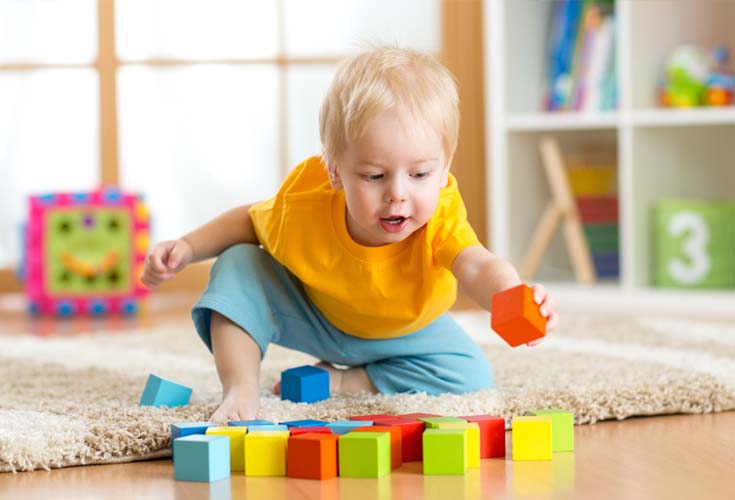
When Should Children Begin Kindergarten?
Kindergarten is the first year of formal schooling in all states and countries. In some states, all students must attend kindergarten when they turn five. Kindergarten is required in other states, such as Ohio, but school enrollment is not required until six. This means that parents can choose when to enroll their children. They may enroll a child in kindergarten at age five, but they must enroll them in school at six.
Delaying kindergarten or “redshirting.”
Some parents may postpone kindergarten enrollment for children they believe are not yet ready for school, a practice known colloquially as “redshirting.” This is more common in the children of affluent, well-educated parents, who are more likely to keep a child among the youngest in their grade. There is no clear research on whether delaying kindergarten entry in these cases is beneficial, requiring families to pay for an additional year of private child care.
According to one study published in Frontiers in Psychology, children who were redshirted had more emotional and behavioral problems than children who were not. The study’s overall conclusion is that children who are delayed in starting school miss out on critical learning stimuli, which contributes to demotivation.
The American Academy of Pediatrics (AAP) does not recommend redshirting children. In fact, they argue that potential behavioral issues may outweigh any perceived academic benefits of delaying kindergarten entry. According to the AAP, redshirted children may miss out on the best learning environment: being around other children their age.
Begin Early Childhood Education at Home
According to the AAP, early education “begins and ends at home,” which means that as parents, you have a lot of say in what your children are prepared for by the time they reach kindergarten.
However, parents should not be concerned about preparing their children for kindergarten. Reading books, playing with your kids, and doing things like that is enough. Children must socialize with other children and participate in family activities.
Here are some views to get you started:
- Every day, read to your children.
- Discuss your child’s day with him or her.
- Plan activities that include following steps and directions together.
- Talk about the weather, the days of the week, and important dates.
- Teach your child basic hygiene practices such as hand washing.
You will be amazed at how much your child will learn once they are old enough and ready to attend kindergarten. So, if you are concerned that your child is falling behind in some areas, keep in mind that no two children will enter kindergarten with the same skill sets. Teachers are trained to assist all students in their classes in reaching their academic goals.
What should a kid know before kindergarten?
Beginning kindergarten is a thrilling and momentous occasion! Parents want their children to have a positive first venture at school. There is so much to discover in kindergarten – how to ride the bus, make new friends, function in a class of 20-25 students, go to lunch and music and art, find the right seat, walk-in line in the hall, and so on! How can a parent articulate if their child is kindergarten ready?
While teachers do not expect children to arrive at school knowing everything, the first few weeks will go much more smoothly if the child has a solid foundation. Students entering kindergarten should be able to:
Describe their wants and needs
Children who greet each other with a “Hello,” ask their teachers for what they need, negotiate well with their peers, and speak up for themselves will do well socially in kindergarten.
Write their names down
The children should write their first names from left to right, with the foremost letter capitalized and the rest in lowercase. At the very least, they must be able to pen down some form of their first name that the teacher recognizes.
Hold a Book
Not read it, but be able to find the cover, hold it in the proper orientation, turn the pages, and find the text. Reading to your child daily is the only way to teach this skill. Keep books in each room and the car. Make sure your child notices you reading your books as well. Reading, reading, reading! Children ready to start kindergarten daily are more prepared because they are used to hearing stories, following along, and seeing them modeled.
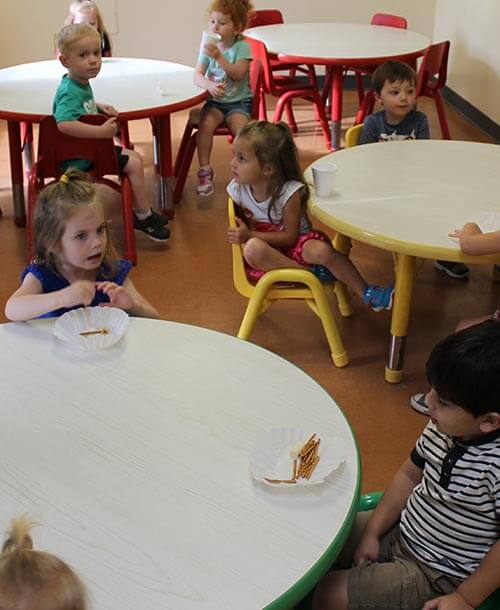
They should know to get dressed
Kindergartners must be able to put on and button their coats, shoes, and pants. Don’t worry if your child hasn’t mastered shoe tying by the beginning of the school year. Continue to practice, but make sure he wears velcro shoes (or something similar) to school.
Be Self-Contained in the Bathroom
Kindergarten teachers will most likely be unable to accompany their students to the restroom. Students must be capable of handling their pants (no overalls or onesies! ), wiping themselves, and washing their hands. Begin practicing at the age of four!
Make use of scissors, glue, and crayons
Kindergarten involves a lot of coloring, cutting, and pasting. Kids who already know how to use their school supplies at the start of the year receive a large gold star. If you need some ideas for how to use scissors, I like this set of images that shows the “right” and “wrong” way.
Recognize a Few Letters and Letter Sounds
Children entering kindergarten should be familiar with many of the letters, beginning with the letters of their names. It’s beneficial if they also understand that letters make sounds, but it’s not required that they know what each one is.
Recognize a Few Letters and Letter Sounds
Children entering kindergarten should be familiar with many of the letters, beginning with the letters of their names. It’s beneficial if they also understand that letters make sounds, but it’s not required that they know what each one is.
Count to ten
Kindergartners should be able to count by rote (1-2-3-4…) through 10 and count a set of objects (4 crackers) with good one-to-one correspondence.
Rhyme
According to research, children with good phonological awareness skills (rhyming is one of them!), are better readers. Play rhyming word games with your child. Sing nursery rhymes and rhyming songs to your children. Read books with rhymes.
Detached from Their Parents
Separation anxiety is extremely common in children who are just starting school. Kindergartners who are happy and at ease in school are off to a great start.
What skills should a kid know before kindergarten?
Language abilities
- Speak in full sentences and be understood by others the majority of the time
- Use words to express your wants and needs.
- Recognize two-step instructions
- Make comparisons and describe object relationships such as big/small, under/over, and first/last
Reading readiness abilities
- Enjoy hearing stories
- Understand how to locate the foremost page of a book and which way to turn the pages
- Recognize well-known logos and signs, such as stop signs
- Recite the alphabet and recognize the majority of the letters
- Recognize their name and attempt to write it
- Determine when two words rhyme (like cat and bat)
- Begin connecting letter sounds to letters (like the sound of the first letter in their name)
- Make a drawing to help express an idea
Self-care abilities
- They must use the restroom and wash their hands on their own.
- They must dress (but may still need help with buttons, zippers, and shoelaces)
- Know and can state the first and last name, and their age
Emotional and social abilities
- Separate yourself from a parent or caregiver without becoming too upset
- Interact with other children
- Pay at least five minutes of attention to an adult-led task, such as listening to directions for an activity or discussing the weather during circle time
Fine motor abilities
- Use a pencil or crayon with care.
- Make use of scissors
- Basic shapes should be copied
- Make distinct letter-like marks and write some actual letters, particularly those in their name
- Assemble a simple puzzle
Gross motor abilities
- Run
- Jump with your feet together
- Climb stairs on one foot
- Attempt to catch a bouncing ball
Also Read: What is Business Tradelines? 7 Important FAQs Answered on Business Tradelines!
What should a kid know before kindergarten? How to prepare?
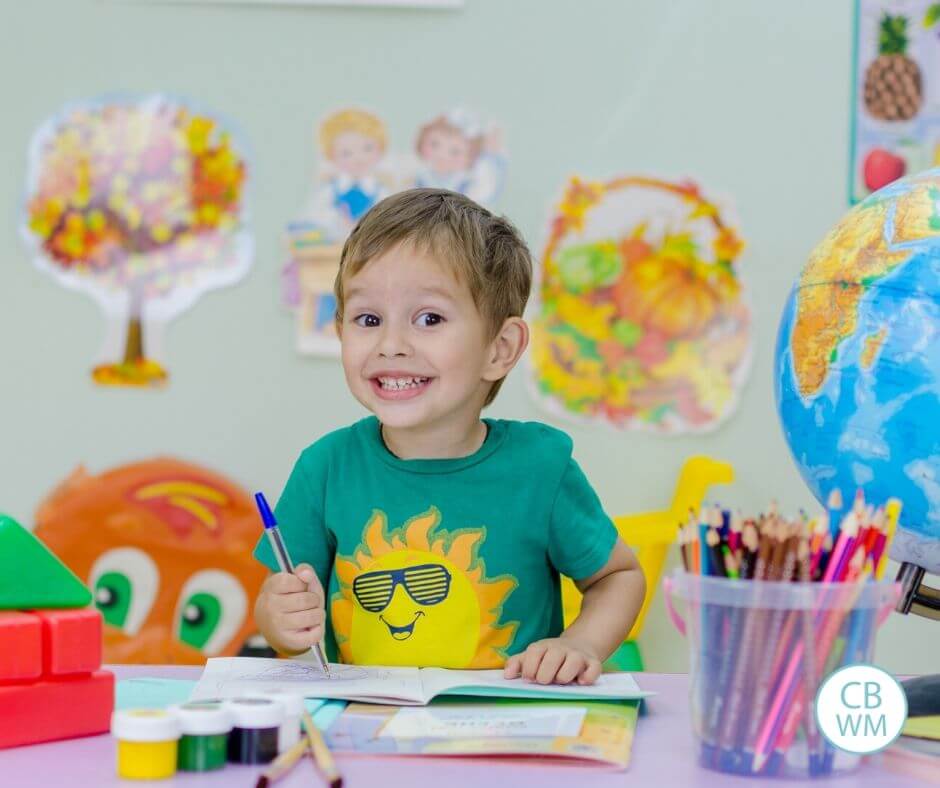
The first day of kindergarten does not have to be frightening or stressful. Readying your child for the first day of school will alleviate much of the stress that both you and your child may be feeling. You don’t need expensive tutoring services or rigorous academic work to prepare your child for kindergarten. Introduce your child to fundamental concepts such as counting and number recognition, assist them in developing social and emotional skills, and work on developing a routine and fine-tuning their motor skills. Check the three ways how you can prepare your child for school.
Cognitive Skills Training
- Teach your child how to count and recognize numbers
Counting to ten is an excellent place to begin, and it is a skill your child will need to master before moving on to basic math. Count things with your child as you go about your daily activities, and point to objects in your environment and ask your child to count them. Ask your child to identify numbers when you see them on a phone, an address, or on television. Give your child physical manipulatives such as blocks or coins to help them learn to count.
- Practice recognizing shapes and colors, as well as grouping objects
Identifying and naming common shapes and colors are two fundamental skills your child will need to learn. Ask them to identify the color and shape of the food they eat, the objects on television shows, and the pictures in books they read together.
Practice sorting objects by common characteristics such as food types, grocery store items, or farm animals. Art can be an excellent tool for teaching shapes and colors while grouping objects. Have your child draw or paint blue foods, red animals, and green plants to practice.
- Assist your child in learning to recognize letters and the alphabet
Learning to recognize letters of the alphabet is critical for developing reading skills at a young age. Play word games with your child and have them recite letters from words they see on cereal boxes, street signs, and posters. The more your child is exposed to the letters of the alphabet, the easier early reading activities at school will be for them.
Sing the A-B-C song with your child to support him or her in remembering the alphabet.
- By reading and practicing together, you can teach your child sight words
Sight words are familiar words that do not follow standard pronunciation rules, such as “do,” “who,” or “come.” These words can make decoding difficult for emergent readers, so practice pointing them out with your child while you read together. You can also make a word wall to help your child remember these words.
High-frequency words are easier to learn, but you should also practice them. High-frequency words are those that frequently appear in the English language. Words like “a,” “the,” and “and” are among them. Rhyming books and poems should be read.
- Introduce your child to new learning opportunities
Exposing your child to educational experiences is as simple as taking them to museums and showing them educational films. Encouragement of exploration and learning will help your child adjust to academic activities at school because they will be familiar with the type of thinking and openness required to learn.
- Make reading more exciting by participating in bedtime stories
Use different voices and encourage your child to read or act out a scene with you. Making reading appear enjoyable will encourage your child to respond positively to reading activities during their first few weeks of kindergarten. As you read aloud, utilize your finger to follow along with the words. Slowly read to let your child jump ahead and shout out the word. Repeat books until your child learns to memorize the words.
Social and emotional preparation for your child
- Practice paying attention and following directions with your child
Reward your child for correctly following instructions to demonstrate the importance of following directions. Model the correct order of directions by physically showing them, and teach them to track with their eyes by making eye contact with them when you speak to them. Instructions with multiple steps can be difficult to follow, so teach them to seek clarification whenever they require assistance.
They will be taught to raise their hands for assistance in school, but you can practice with them. When your child expresses an interest in something, show them that if they silently raise their hand, you will respond quickly.
- Show the value of sharing with others and taking turns
Your child will need to understand how to share and take turns in a setting with other children. To demonstrate the joys of sharing with others, ask if you can see a toy they’re playing with and pretend to borrow it. Stay calm if they throw a tantrum to demonstrate nonviolent conflict resolution. When it comes to sharing, praise is a powerful tool. When your child volunteers to share, always tell them how proud you are of them.
- Increase excitement by talking positively about school
Discuss how much fun your child will have at school! Discuss how nice the teachers will be and how many new friends your child will make. This will remind them that they will do something enjoyable and encourage your child to respond positively to the school. Tell your child a funny or exciting story that occurred while you were at school. It will be reassuring to know that you have been through what they are about to go through.
- Set expectations and goals with your child before the start of the school year
Explain clearly and openly what you expect from your child. Try framing expectations in terms of positives rather than negatives; for example, “I expect you to be kind to others” rather than “I don’t want you to be mean.” Instead of reminding your child of the consequences of negative behaviors, this will encourage positive behaviors.
Consider agreeing on a long-term reward for positive behaviors with your child. If they want a tricycle or a new toy, give it to them as a reward for making consistent academic progress. At first, avoid setting lofty goals. Try “share at least twice a day” instead of “always share with others.” Smaller goals will appear more manageable to your child.
- Inquire your child about what seems scary or exciting to them
Simply asking your child about their fears and interests is a great way to figure out what you should and shouldn’t be doing to help them. Discussing fears and interests also establishes the importance of being honest about feelings, which will be beneficial when your child encounters many new things during the first few weeks of school.
If they’re looking forward to meeting new people, remind them how fun friends can be regularly. If your child is afraid of being away from home, you should avoid scheduling too many errands or play dates during the first few weeks of school.
- Encourage your child to interact with other children his or her age
Take your child to playgrounds, set up play dates, and host parties where other children will be present to get them used to be around other children their age. Use each interaction to teach your child how to share and resolve conflicts peacefully. Being around kids their age will help them adjust to a large class starting the school year. Before school, some schools distribute class rosters and parent contact information. Consider scheduling a play date with another student before the start of school so that your child will see a familiar face on the first day.

Physical Growth and Motor Skills Practice
- Prepare your child to use the restroom before the start of school.
Your child is prepared for potty training if they follow directions and put on and take off their pants. Explain the significance of hygiene and walk through the restroom steps. Use simple language and go to the restroom every 2-3 hours. Consistent practice will prepare your child for bathroom breaks at school and will assist them in avoiding accidents.
Determine whether or not your child’s kindergarten classroom has a bathroom. If it does not, ensure that your child has used an individually-locking toilet stall independently within a public restroom. If you have a boy, make sure he knows how to use a urinal and wears his pants when he pees. For boys, this is more natural, generally sanitary, convenient, and efficient than peeing in a stall.
- To prepare for school, eat, sleep, and play at the same times every day
Getting your child used to routines will help them adjust more smoothly to kindergarten. If your child is used to doing things at specific times of the day, they will have fewer problems going to lunch, recess, and rest at the same time every day once school begins.
Check with your school to find out when nap time is. To make things easier when school starts, align your child’s nap time at home with the school’s schedule. Create a new routine to follow after school. A daily walk around the block is an excellent way to spend quality time with your child after school while reinforcing the importance of consistency.
- Set a bedtime and stick to it every night
Children under five need 11 to 12 hours of sleep per day. Set a bedtime and stick to it while school is in session. Your child’s bedtime and wake-up times must coincide with school, so avoid allowing them to stay up late whenever possible. Maintaining a consistent bedtime schedule will ensure you get enough sleep!
- Demonstrate how to hold a pencil and practice writing your child’s name
Direct your child on how to hold a pencil at a 45-degree angle between their thumb, index, and middle fingers. Allow them to write their names several times, paying close attention to how they hold a pencil.
Give them short pencils and pens to encourage proper pencil holding. This can help them avoid making fists with it. Make writing their name enjoyable! To encourage them to practice written language, ask them to sign their name on their artwork. Playing with clay or molding blocks helps to strengthen the hand muscles.
- Instruct your child how to zip/button a jacket and how to put on shoes
During the colder months, your child will need to bring a coat or jacket to school, and the teacher may not always be able to assist your child if 20 other students require assistance. Show them how to zip or button their jacket and encourage them to practice independently before assisting them. The same is true for putting on and taking off their shoes. Even if they are too young to tie their shoes, they will benefit from putting on and taking off their shoes on their own.
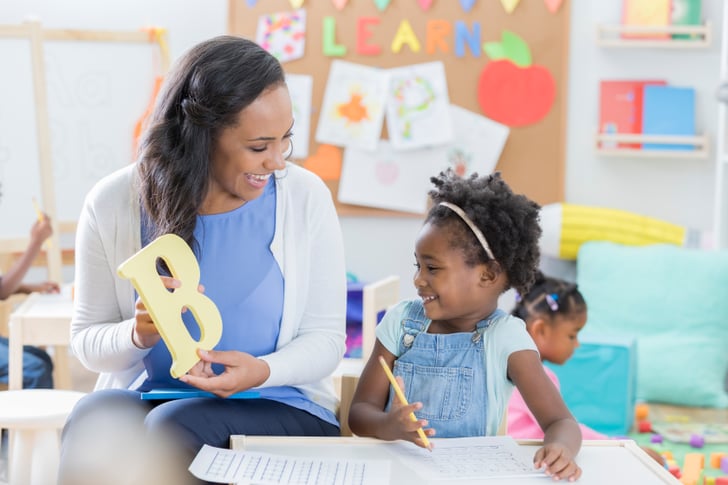
Takeaway
Children develop at different rates. Children are not uncommon to excel in one area while struggling in another. Some states use kindergarten readiness tests to determine which early learners may require additional assistance in certain areas.
If you are concerned that your kid is not ready for kindergarten, consult with your child’s preschool teacher and work together to develop a plan to address any issues. You should also consult with your child’s primary care physician. That’s all you need to know about what should a kid know before kindergarten.

